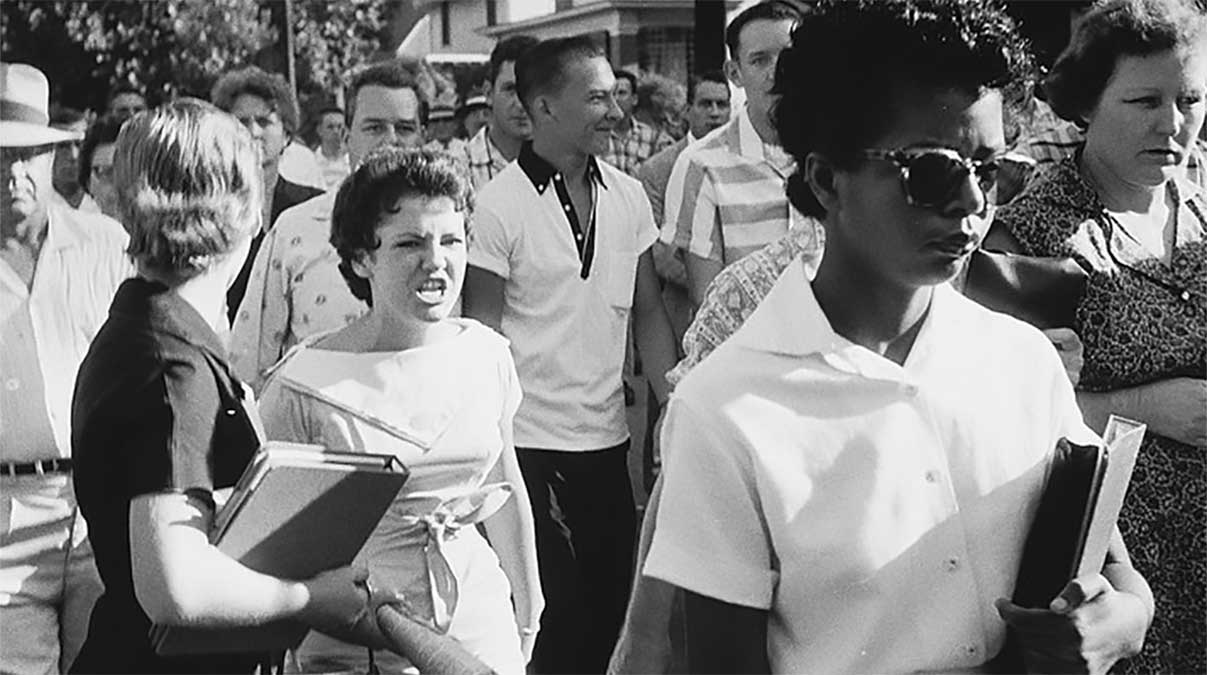
Sept. 4, 1957

Elizabeth Eckford, one of nine Black students, attempted to enter Central High School in Little Rock, Arkansas. Unlike the other eight, she had never received the message to stay away from the school.
As she walked toward the school, a mob hurled racist slurs at her and threatened to lynch her, she said. “I tried to see a friendly face somewhere in the crowd — someone who maybe could help. I looked into the face of an old woman and it seemed a kind face, but when I looked at her again, she spat on me.”
The 15-year-old student maintained her cool and kept walking. As she made her way to the high school, a white girl named Hazel Bryan began screaming at her. The tormenting continued after she and other Black students began to attend the school.
She told her story in her memoir, “The Worst First Day: Bullied While Desegregating Little Rock Central High.” She said she believed that racial reconciliation was possible “if we have honestly acknowledged our painful but shared past.”

